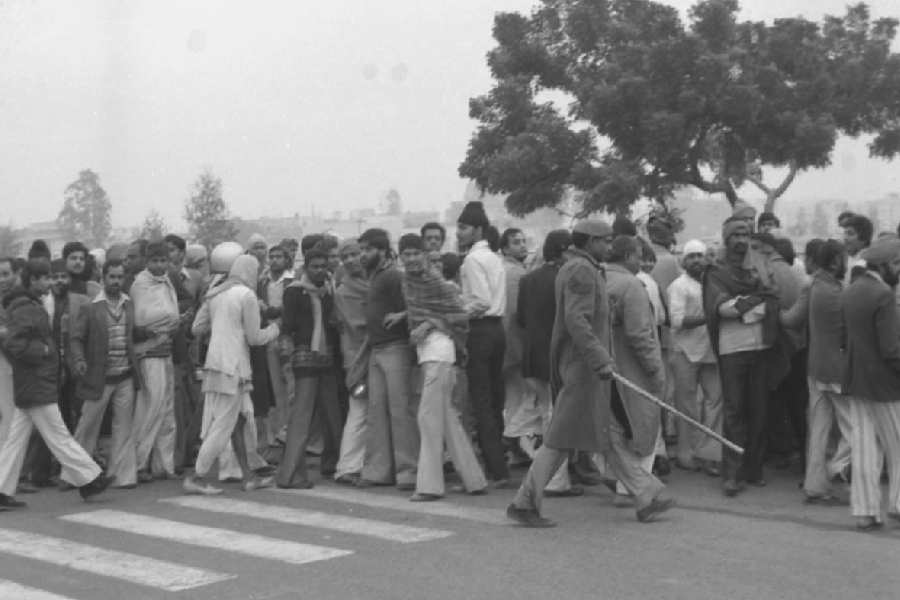Book: FALLEN CITY: A DOUBLE MURDER, POLITICAL INSANITY, AND DELHI’S DESCENT FROM GRACE
Author: Sudeep Chakravarti
Published by: Aleph
Price: Rs 799
A murder mystery rests on uncovering the motive behind a crime and the murderer’s design. What then becomes of a nearly 46-year-old murder case that has been solved? A murder which seems straight out of a bestselling thriller but is actually steeped in lived reality.
Fallen City is a chronicle of two deaths — not foretold — presented through the prism of the collective consciousness of a failed society, the guilt and the grief of the masses, and their unconditional apology.
Geeta Chopra (17) and Sanjay Chopra (15), the children of Captain M.M. Chopra whose ‘missing report’ would find a tiny space on ‘Page three’ of a leading Indian newspaper on August 28, 1978, would eventually go on to occupy the front pages of every national daily. Wedged between the aftermath of the Emergency and the future years of the anti-Sikh riots, the Chopra siblings and their bone-chilling deaths at the hands of the hyphenated murderers, Billa-Ranga, shook an entire nation.
Right from the discovery of the putrefying corpses of the children in the dense and “quiet forest on the Ridge”, stretching from south of Sadar Bazaar to Dhaula Kuan, till the hanging of Jasbir Singh (alias Billa) and Kuljeet Singh (alias Ranga) at the “Phansi Kothi” in Tihar jail on the last day of January 1982, the book traces each and every detail of the case with journalistic precision, emotional clarity, and utmost sensitivity. A Class 10 student, a teenager himself, at the time this gruesome incident jolted India’s capital out of slumber, the author captures the personal emotions he has been carrying inside him through the years as a cathartic response to the gut-wrenching event involving two teenagers. In the Afterword, Chakravarti writes how the book must be seen as “a memorialization of a time of tumult and fracture.”
In Chronicle of a Death Foretold, Gabriel García Márquez wrote about the murder of Santiago Nasar by the Vicario brothers. In a particular scene, the brothers decide to use the same knives they’d used to slaughter pigs. They visit the meat market to sharpen their murder weapon. Billa and Ranga used kirpans (knife with a curved blade) which they had “purchased at Chandni Chowk and sharpened at Nai Sarak.” Márquez’s story was fictional, albeit inspired by a true incident. Billa and Ranga were not biological brothers. Billa was short, Ranga was over six-feet tall. They had drugged, raped, and struck the children repeatedly with brute force till they dropped dead. The siblings had fought and resisted till the very end. Witnesses, good Samaritans, who had crossed paths with the Chopra siblings and the murderers at various junctures while the former were being whisked away in a stolen Fiat car, failed to save them. Santiago’s well-wishers, too, could not avert the killing. That was fiction. This was not.
Billa and Ranga were in their early twenties when they did what they did. Some of the macabre aspects that emerge from their confessions include their misplaced sense of ‘bravado’, reliance on pathological lying, and complete absence of remorse, regret, or shame. During questioning hours or public appearances, Billa would laugh cynically, and Ranga would flash a smile like a celebrity to the photographers. In his confession, an audaciously unscrupulous Billa hints that Geeta “neither expressed her willingness nor her unwillingness. The clothes were removed and I did my work (committed the rape on her) inside the car.”[1] Both Billa and Ranga, after retracting their respective confessions, pleaded ‘not guilty’ and “projected themselves as ‘martyrs’.” On being asked about the murder of the Chopra siblings, the final words spoken by Billa in an interview to Prabha Dutt leave behind more difficult questions than easy resolutions. He utters, “I will take the truth with me.”
Billa and Ranga might have died four decades ago. The crime they committed did not. Several Billas and Rangas are on the loose. There exist criminals equipped with stronger alibis, robust defence mechanisms, foolproof strategies, muscle and political power and backing, who are harder to nab or bring to book. Systemic loopholes, State apathy, and a collapse of the institutional apparatus of social justice and law and order continue to dominate our ecosystem.
It is 2024. The rape
and murder of a woman doctor at Calcutta’s R.G. Kar Medical College and Hospital resonates, perfectly and eerily, with the ‘truth’ Billa signed off with in 1982.











